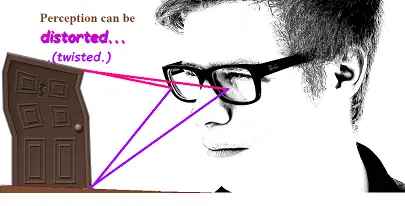| Back to Back Issues Page |
 |
|
English Detective # 93 Watch out for Cognitive Biases! 10-17-17 October 17, 2017 |
Have you ever wondered what is behind the bad decisions we all make at times? Learn about cognitive biases-- mental tendencies we rely on for easier decision-making—and how they can lead to a lot of trouble instead. The TED talk also discusses mindset: whether we approach judgments with a strong desire for all the facts, or with a preference for a certain result or outcome.

Vocabulary: Mental Processes & Cognitive Biases
assume—to think you know about something without really looking into it. (Its noun is assumption.) Example: “The teacher assumed Eric was just too lazy to do his homework until she learned he was working 20 hours a week to help feed his family.” bias- favoring one group or choice over another without evidence; prejudice cognitive- related to knowledge or understanding (from the Latin word for ‘getting to know something’—the same root the word ‘recognize’ comes from.) confident- feeling able or sure of oneself or of a situation. Overconfidence is more confidence than is justified. confirm- to verify that something that you thought or believed is in fact true. fallacy—incorrect (or false) reasoning mental- of (relating to) the mind misjudge- to make a mistake in judgment; misunderstand perceive—to recognize with the senses (see, hear, sense). Perception is the noun: knowledge obtained through the senses. rely- to trust in someone or something for help. Reliance means confidence or trust; reliability means trustworthiness. Example: The business lost a lot of money because of over-reliance on a single supplier that was devastated by the hurricane. To practice related words (about honesty and deception, rather than self-deception), see 20+ Words for Truth, Falsehood, and Error.” A link to the answers is at the bottom of the page. Incidentally, English Detective 53 has some ideas for teaching children about bias. If you’re a teacher, you may find those links useful. A note if you get gmail: Have you missed any issues of English Detective? if you find English Detective in your Promotions box, you can move it to your Primary box (if you want) by clicking on it and dragging it there, then clicking Yes when asked if you want to always get it in the Primary box. If you are not already getting English Detective, you can subscribe by completing the form here. (It's free!) Also, you can reach me by mail at 1752 Driftwood Drive, El Centro, CA 92243, USA. |
| Back to Back Issues Page |